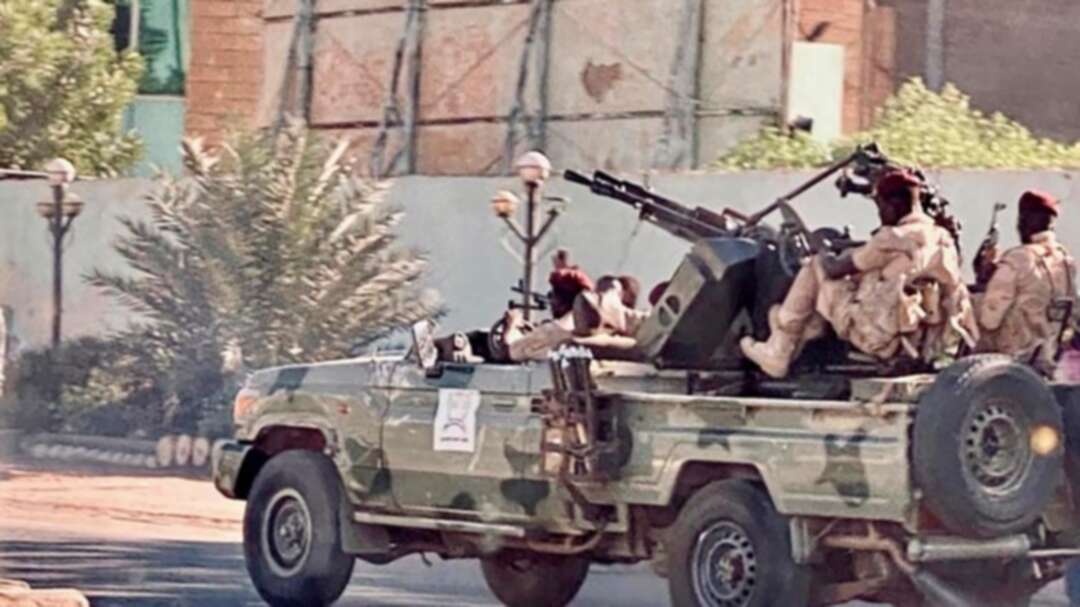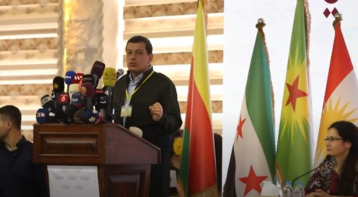-
Sudan appoints new intelligence chief in wake of failed revolt

Sudan’s transitional authorities on Thursday appointed a new intelligence chief days after putting down an armed revolt by former agents linked to toppled ruler Omar al-Bashir, the sovereign council said.
The army said two soldiers were killed and four wounded in fighting late on Tuesday in Khartoum with former members of the country’s once-feared security service before government forces quelled the uprising.
It was the biggest confrontation so far between the old guard and supporters of the transitional authorities, which helped topple Bashir in April after 30 years in power.
The Transitional Sovereign Council, which runs the country, accepted the resignation of General Abu Bakr Dumblab, the head of the General Intelligence Service, formerly known as National Intelligence and Security Service, a council statement said.
The council appointed General Jamal Abdul Majeed as a new head of the service. He had headed military intelligence.
Dumblab resigned “to open the door for new leadership to take over the agency at this sensitive and delicate stage,” the intelligence service said in a statement. Dumblab had become head of the service after the removal of Bashir.
Former agents of the intelligence service, who had been protesting against their severance packages, also shut two small oilfields on Tuesday.
The military took control of the two fields, which have an output of around 5,000 barrels a day, and production resumed on Wednesday.
The revolt also forced the authorities to close Sudan’s airspace but it was reopened on Tuesday.
In a speech early on Wednesday, the sovereign council head, Lieutenant General Abdel Fattah al-Burhan vowed to stand firm against any coup attempt and added that the army was in control of all buildings used by the intelligence service.
Restructuring the security apparatus, blamed by many Sudanese for suppressing dissent under Bashir, was a key demand of the uprising that had forced his removal. However, once dismissed by the new transitional government, many of the security agents returned to barracks without handing in their weapons.
source: Reuters
You May Also Like
Popular Posts
Caricature
BENEFIT Sponsors BuildHer...
- April 23, 2025
BENEFIT, the Kingdom’s innovator and leading company in Fintech and electronic financial transactions service, has sponsored the BuildHer CityHack 2025 Hackathon, a two-day event spearheaded by the College of Engineering and Technology at the Royal University for Women (RUW).
Aimed at secondary school students, the event brought together a distinguished group of academic professionals and technology experts to mentor and inspire young participants.
More than 100 high school students from across the Kingdom of Bahrain took part in the hackathon, which featured an intensive programme of training workshops and hands-on sessions. These activities were tailored to enhance participants’ critical thinking, collaborative problem-solving, and team-building capabilities, while also encouraging the development of practical and sustainable solutions to contemporary challenges using modern technological tools.
BENEFIT’s Chief Executive Mr. Abdulwahed AlJanahi, commented: “Our support for this educational hackathon reflects our long-term strategic vision to nurture the talents of emerging national youth and empower the next generation of accomplished female leaders in technology. By fostering creativity and innovation, we aim to contribute meaningfully to Bahrain’s comprehensive development goals and align with the aspirations outlined in the Kingdom’s Vision 2030—an ambition in which BENEFIT plays a central role.”
Professor Riyadh Yousif Hamzah, President of the Royal University for Women, commented: “This initiative reflects our commitment to advancing women in STEM fields. We're cultivating a generation of creative, solution-driven female leaders who will drive national development. Our partnership with BENEFIT exemplifies the powerful synergy between academia and private sector in supporting educational innovation.”
Hanan Abdulla Hasan, Senior Manager, PR & Communication at BENEFIT, said: “We are honoured to collaborate with RUW in supporting this remarkable technology-focused event. It highlights our commitment to social responsibility, and our ongoing efforts to enhance the digital and innovation capabilities of young Bahraini women and foster their ability to harness technological tools in the service of a smarter, more sustainable future.”
For his part, Dr. Humam ElAgha, Acting Dean of the College of Engineering and Technology at the University, said: “BuildHer CityHack 2025 embodies our hands-on approach to education. By tackling real-world problems through creative thinking and sustainable solutions, we're preparing women to thrive in the knowledge economy – a cornerstone of the University's vision.”
opinion
Report
ads
Newsletter
Subscribe to our mailing list to get the new updates!






















